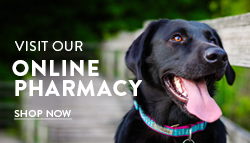Blog
When you choose to bring a pet into your family, you take on many responsibilities. While good nutrition and exercise are obvious elements of your pet’s care, many owners don’t fully realize the importance of looking after their animal’s teeth. Good dental health will not only help your beloved furbaby to retain her teeth – which are essential for eating and keeping her tongue in place - for as long as possible, but it can also protect her from developing problems with her general wellbeing.
Dental care is something that is being offered by an increasing number of veterinarians, with services offered including everything from professional cleans to more invasive treatments. Ensuring that you get your pet’s teeth checked regularly and booking them in for regular professional cleans can help to protect them from decay, damage, and disease, but could this come at a price other than the one that hits your wallet?
Some veterinarians and animal welfare specialists believe so, and for the last few years, there has been some debate over the use of anesthetic in veterinary dentistry. The main reason for this controversy comes from the risks associated with the use of anesthetic in pets.
Is anesthetic safe?
Whether human or animal, the drugs used in anesthesia are not natural and this means that there will always be some degree of risk associated with their use. However, better protocols, safer drugs, and more sophisticated monitoring techniques mean that the use of anesthesia in veterinary dentistry is less dangerous than ever before. In fact, studies show that an estimated 99.85% of animals survive anesthesia and sedation.
Pets that do not do so well with anesthetic include those animals who may have an underlying medical condition or are of advanced age. If either of these applies to your pet, our veterinarian will still do a thorough assessment so that he/she can make an accurate recommendation as to whether anesthesia is safe and suitable for your animal.
Reasons for non-anesthetic dentistry
The key argument given by people who prefer for their pet to have their dental care without the aid of anesthetic is the risks involved in its use. Many owners are very in favor of keeping their pet’s lifestyle as natural as possible, and for some, this means avoiding any medications or treatments that they consider to be unnecessary.
Dental cleanings are a crucial part of your pet’s care, but the costs associated with this treatment are considerably more when anesthesia is involved. The expense associated with the use of anesthesia can cause some owners to choose a drug-free dental cleaning.
Reasons to choose anesthesia for your pet’s dental care
Those in favor of using anesthesia for their pet’s dental care have a number of reasons for their choice. Their main argument is that the risk of injury occurring in a non-anesthetic clean far outweighs the risks associated with the use of anesthesia. Dental care involves sharp tools and requires precision and accuracy to be performed safely. Unfortunately, even the best-trained pet doesn’t understand the importance of remaining completely still during a dental procedure and any movement increases the likelihood of injury.
Pets that are under the effects of an anesthetic will not have to be restrained during their dental appointment, and the veterinarian will have unobstructed access to their teeth. The majority of vets will agree that professional cleans performed while an animal is unconscious are substantially more thorough and better quality than those carried out while the pet is awake. This means that choosing anesthesia for your pet’s dental care can ensure that your animal gets the best dental care possible from your chosen professionals.
Visiting our veterinarian can be a stressful experience for even the most placid pet, and undergoing dental treatment only adds to that trauma. Many owners in favor of using anesthesia argue that putting the animal to sleep for the duration of the process is much kinder than exposing her to unnecessary anxiety and stress.
If you aren’t sure whether the use of dental anesthesia is the right choice for your pet, contact us and consult with our veterinarian who will be happy to give you further information and make a recommendation.






